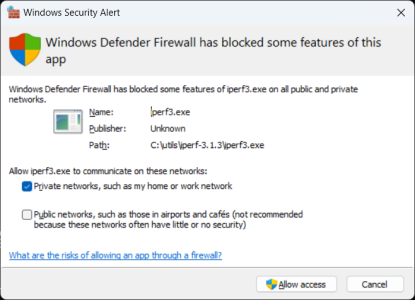Does it make sense to enable the firewall on a single Windows computer connected to internet by the router?
Outside attackers won't reach this computer unless I publish the specific port on the router.
Malicious program trying to access internet from inside won't be blocked anyway because all outside connections are allowed by default.
If so, then it looks like the only purpose of the firewall it to protect from other devices in the same LAN?
Outside attackers won't reach this computer unless I publish the specific port on the router.
Malicious program trying to access internet from inside won't be blocked anyway because all outside connections are allowed by default.
If so, then it looks like the only purpose of the firewall it to protect from other devices in the same LAN?


